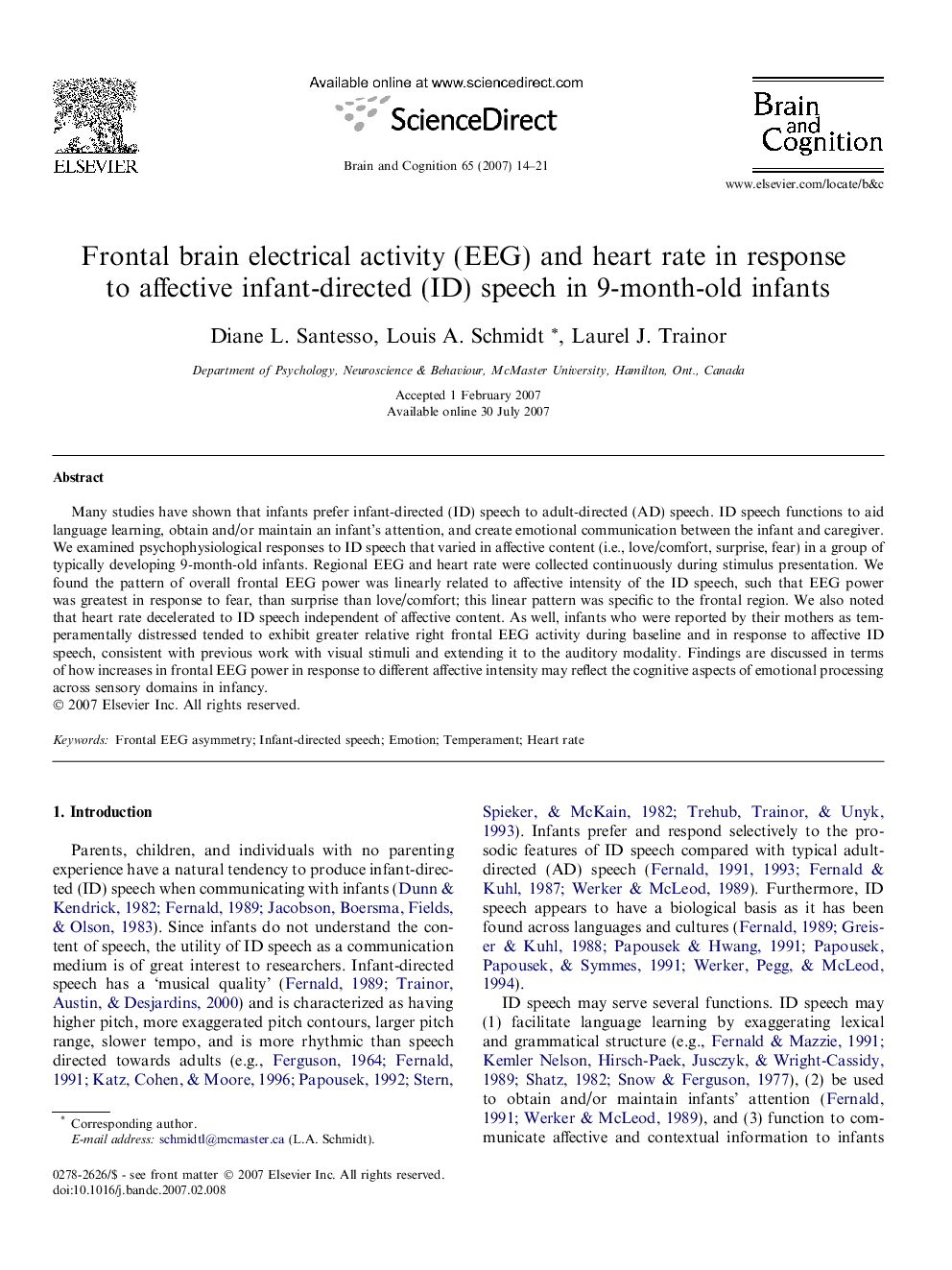| کد مقاله | کد نشریه | سال انتشار | مقاله انگلیسی | نسخه تمام متن |
|---|---|---|---|---|
| 924797 | 921272 | 2007 | 8 صفحه PDF | دانلود رایگان |

Many studies have shown that infants prefer infant-directed (ID) speech to adult-directed (AD) speech. ID speech functions to aid language learning, obtain and/or maintain an infant’s attention, and create emotional communication between the infant and caregiver. We examined psychophysiological responses to ID speech that varied in affective content (i.e., love/comfort, surprise, fear) in a group of typically developing 9-month-old infants. Regional EEG and heart rate were collected continuously during stimulus presentation. We found the pattern of overall frontal EEG power was linearly related to affective intensity of the ID speech, such that EEG power was greatest in response to fear, than surprise than love/comfort; this linear pattern was specific to the frontal region. We also noted that heart rate decelerated to ID speech independent of affective content. As well, infants who were reported by their mothers as temperamentally distressed tended to exhibit greater relative right frontal EEG activity during baseline and in response to affective ID speech, consistent with previous work with visual stimuli and extending it to the auditory modality. Findings are discussed in terms of how increases in frontal EEG power in response to different affective intensity may reflect the cognitive aspects of emotional processing across sensory domains in infancy.
Journal: Brain and Cognition - Volume 65, Issue 1, October 2007, Pages 14–21